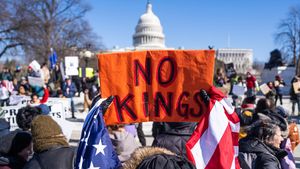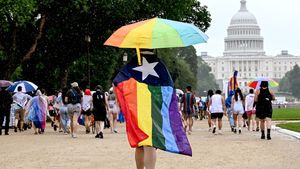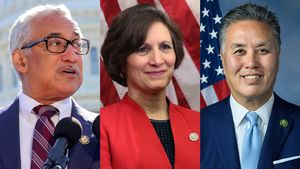The U.S. Supreme Court will have at least five marriage equality cases to consider taking up this session, after lawyers representing the same-sex couples in Louisiana filed a brief seeking review from the nation's high court on Thursday, reports BuzzFeed.
The Louisiana case, known as Robicheaux v. Caldwell, was the first since the Supreme Court's landmark decision striking down the federal Defense of Marriage Act that saw a federal judge uphold a state's ban same-sex marriage.
In September, U.S. District Court Judge Martin Feldman became the first federal judge to determine that a state's ban on same-sex marriage did not violate the U.S. Constitution since the Supreme Court's June 2013 decision in Windsor v. U.S. Earlier this month, the Sixth Circuit Court of Appeals followed Feldman's lead, upholding marriage bans in Ohio, Michigan, Tennessee, and Kentucky.
Attorneys representing the same-sex couples in the Louisiana case have already appealed Feldman's decision to the U.S. Court of Appeals for the Fifth Circuit, which has scheduled a January hearing for marriage-related cases out of Louisiana and Texas, where a district judge struck down the Lone Star State's prohibition on same-sex marriage.
But BuzzFeed's legal editor Chris Geidner notes that the attorneys in the Robicheaux case have taken the unusual step of petitioning the U.S. Supreme Court for review before the lower court of appeals has issued a decision.
Geidner explains that Thursday's request for review, or "petition for a writ of certiorari before judgment, is a rare procedural move that parties can take to try to bypass the appeals court and get immediate review by the Supreme Court."
In addition to the case out of Louisiana, same-sex couples in the four cases recently decided by the Sixth Circuit have also asked the Supreme Court to reconsider that circuit court's ruling, which upheld bans on marriage equality in Michigan, Ohio, Tennessee, and Kentucky.
All of the cases currently seeking a writ of certiorari from the nation's high court saw lower courts uphold state bans on same-sex marriage — a complete reversal from the seven cases out of five states that the Supreme Court in October declined to review, letting pro-equality rulings stand and helping to bring the freedom to marry to a total of 35 U.S. states and the District of Columbia.






























































































 Cindy Ord/Getty Images
Cindy Ord/Getty Images

























